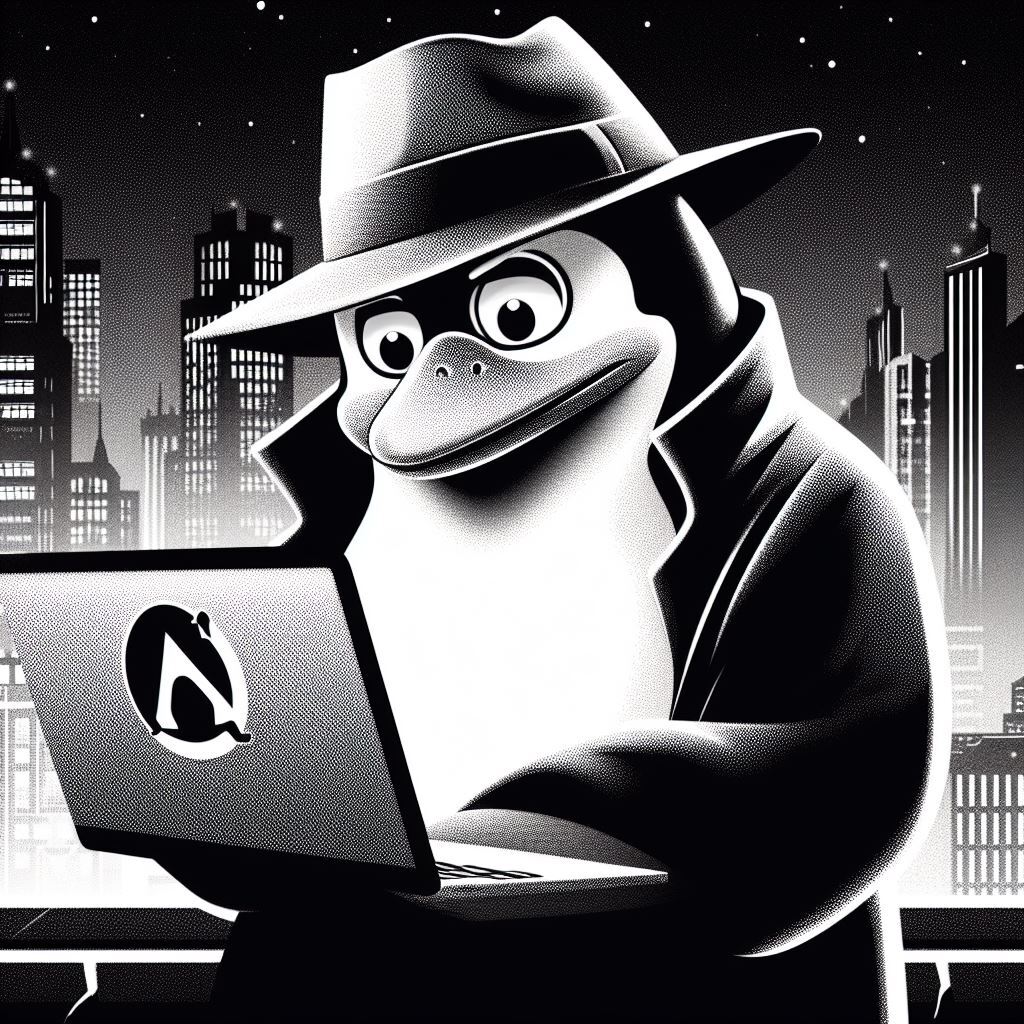What else will corporations pay Congress to decide that is in corporations’ best interest for us to not see?
Its good to see congress focusing on the real issues finally. When I pay taxes, this is what I’m looking for. Hopefully they will get around to legalizing kicking homeless people and children in the face soon as this is another one of my priorities.
Won’t someone please think of the children…'s unkicked faces
Thought about it and I don’t like it. Motion carries. * slams gavel on homeless child’s face *
Thank you for your service.
As a disabled person I find I am not intentionally tripped anywhere near enough. I beseech Congress to act now before I become complacent in my verticality.
Instead of working to create a cost effective, quick method for users to buy (AND OWN, NOT LICENSE) digital movies, the MPAA is instead going to try and censor the internet. Brilliant move, idiots.
own
There is nothing they want us to do less.
deleted by creator
Let’s take that logic outward a step…
Stocks are digital these days. Cryptocurrency is digital. So you’re basically saying those should be licensed to people, not owned.
Ownership has nothing to do with the tangibility of the thing in the age of the Internet. And to say otherwise is missing the point of ownership in the first place.
If I outright buy a movie, whether digital or not, I should own it – be able to download it, play it whenever I want, in perpetuity. If I subscribe to a service such as Disney+, then I fully know that I am purchasing a license to view their content.
The logistics of providing such ownership is the cost of doing business, just like it is for Blu-ray. I would argue that ownership should be even easier, logistically, for digital goods because there is no actual manufacturing effort involved (aside from initial production of, say, a movie).
The only reason companies want to license digital goods, instead of providing ownership to those who buy it, is greed (edit: and control).
You chose funny examples because a lot of people basically own a “license“ of those things and don’t even know it. Especially if they’re using a crypto exchange. They don’t own shit
Yes, they actually do. They’re tokens of ownership that can easily be converted to money. It’s called an asset.
This is why this world is so fucked. People quibble over definitions of things while the rich assholes running the show get richer.
And so many in this thread want to keep it that way.
Oh well, not like I can convince anyone here of anything, nor do I care to try. Keep believeing what you want.
If you buy on an exchange and don’t transfer to your wallet no you do not own it. Until it’s in your wallet, it’s theirs. They will transfer it to you when you call for it. THEN it’s yours.
Not your keys, not your crypto.
I can own an ebook or an MP3, while some services license them many of them actually just sell you the media outright. Why are movies any different?
Otherwise, I agree, if we’re (for some legitimate reason) forced into licensing instead of purchasing, the license needs to be perpetual and irrevocable.
deleted by creator
You’re confusing ownership of media with ownership of copyright. I’m not suggesting that I can buy an mp3 and reshare it (or the same for an ebook), that’s a violation of copyright. I’ve never suggested that buying them lets me remove DRM, re-share, etc. It’s a strawman argument that you and conciselyverbose seem very attached to, but not an argument I’m making.
Ownership is not strictly limited to physical items, and I’m very curious why people think it is. There’s significant outstanding case law precedent that proves that ownership can apply to digital files as well.
deleted by creator
Subscribe to netflix, put up flyers that you are streaming all of Ozark all week for free at your house. Then tell Netflix that you’re doing it. Let me know what happens.
Try it with a blu-ray and alert the copyright holder. Try it with a CD of your favorite album and alert the record company. Again: free, at your home, your physical or digital media you “own.” See what happens.
This guy really thinks watch parties and listening to music with friends over is illegal or unethical or some shit.
I never said it was unethical. I said it violates the license,which it does.
Do I think it’s bullshit? Absolutely. Do not paint me as anti-consumer, anti-ownership, or even anti-piracy. I’m saying what reality is.
We don’t own shit when it comes to music and movies and that’s a serious problem. Arguing with me doesn’t change that. I am saying we need to fix this.
You don’t own an ebook or an MP3 either. You have a license. You still legally aren’t permitted to do whatever you want with it. (And because virtually anything you do on a computer requires copying, there is no discrete “file” for you to own like you do physical media.)
DRM is a tool that companies use to screw customers out of controlling their own libraries, but content being DRM-free doesn’t change anything about what you legally can or can’t do with it, and doesn’t turn your license into any kind of legal ownership.
That’s not accurate. Go buy an MP3 from Bandcamp, you own the mp3 (it’s a merchandise transaction, not a license, it’s very explicit in the terms of service) – you don’t own a license to the mp3, you own the actual mp3 (same as you would own a CD). The same is true of several other mp3 stores and a handful of ebook providers, as well as when you buy ebooks directly from the author (quick example: https://melissafmiller.com/how-and-why-to-buy-ebooks-direct-from-me-and-other-authors/).
Owning the CD doesn’t allow you to make derivative works as owning the CD doesn’t make you the copyright holder, just like owning the mp3 doesn’t actually mean you’re the copyright holder, and I’m not making any argument otherwise (referring to your “legally permitted to do whatever you want” comment) – but you absolutely can buy mp3s and ebooks and not license them.
DRM is an entirely separate issue and not relevant here as none of what I’m referring to relates to non-DRM protected licensed content.
If you owned it, you would have the legal right to use it however you like. For example, using it on your YouTube video. But you don’t, and Bandcamp is clear about that:
Bandcamp licenses it from the artist for the purpose of redistribution, but that’s it. They don’t have a license to transfer any other right than private use.
You license everything. Physical media might make it easier to keep that license perpetually, but it’s still licensed.
Yes, it is. It is fundamentally not possible to own a specific copy of a file. There is no legal basis for it. It is literally always, unconditionally, a license in every possible scenario where you don’t gain actual copyright assignment. It cannot possibly be anything else.
It doesn’t matter what their page says or how they present it. They can grant you unlimited rights to copy for personal use, but literally every time you move a file to a new drive or device is a completely distinct new file. It is not the same entity.
I’m not trying to be a jerk here, but you saying it over and over and offering no proof or corroborating evidence for your claims isn’t furthering the discussion. I’ve provided two examples of cases where purchasing a file constitutes ownership and not a license, one where purchasing an MP3 constitutes full ownership of the MP3 via the terms of service, and one where purchasing an eBook constitutes full ownership of the ebook. According to you this is impossible, but I’ve provided two clear examples where it is, in fact, possible.
I am interested in hearing why you believe what you believe and what evidence you can present that supports your beliefs, but if all you can do is restate that you say it’s x/y/z without any legal standing it and without anything that explains how the terms of service I provided are incorrect or unenforcable (e.g., can you provide me any previous situation in case law where terms of service expressly disclose an mp3 or ebook purchase as a merchandise transaction, but then treat as a revocable license?), I’m not sure where we can go from here. I appreciate your willingness to have the discussion but I’m not here to take someone’s word without any corroborating evidence.
I think that a lot of people think what you think, and I think a lot of people think that because the majority of places online only allow purchases as licenses, but just because 85% or 90% of places you go online sell you a license to an mp3 or an ebook doesn’t mean that other places don’t exist where you can buy the mp3 or ebook outright. Further, I’ve done a lot of digging and I cannot find any case law that supports your claim that it’s not possible to “own” a file. Authors own manuscripts they write on their computer and can seek civil or criminal penalties when those files are stolen, musicians own the raw files they make of their music and can do the same, etc.
No, you posted links claiming to do something impossible.
There is no legal concept of ownership of a file. It does not exist. There is no framework that can be interpreted to enable someone to own a specific copy of a file, which again, disappears every time you move it. You own the intellectual property contained in a file, or you don’t.
The framework that does exist is a license to a file (not a specific copy. Specific copies don’t mean anything). That license can be insanely permissive. It can grant you anything from permission to change, alter, and redistribute without any permission or attribution, to “you can view this once on this specific device”, and pretty much anything in between. But it’s always a license. It’s not capable of being anything else.
Physical media is ownership of that actual physical item. The law has added an implied license granted by possession of said item that grants additional rights to back up the contents, on a very limited basis, but the only thing with ownership involved is the actual physical media.
Downvotes for being correct. Everything is licensed. Only the copyright owner holds anything other than a license. There is no legal framework for it working otherwise.
It’s wild how many people are buying into “it’s not a license” marketing fluff, when actually acknowledging it as the license it necessarily has to be and explicitly granting rights would be way more in the consumer’s interest.
The fact that they’re DRM free is good. But a vague marketing statement that “you own it” without actually clearly granting rights in a license is not good. (There might be license terms somewhere on the sites he’s referring to; I didn’t check because it isn’t actually relevant to anything.)
just sell me a fucking bluray without encryption and maybe i’ll consider buying them for fucks sake.
I buy DVDs
DVDs are almost good, they still have encryption but its so shit you can just brute force it and it cripples. And somehow that’s legal, but decss or whatever it was wasnt. Gotta love IP
deleted by creator
Of course you can actually buy movies, but that involves millions or billions and a lot of contract work.
Couldn’t you say the same about video games? And you can definitely own your video games, and they’re digital too.
deleted by creator
If I have the files on my own hard drive with no DRM or control on when or how I can play the game, how can you say I don’t own it? What would be the difference between “licensing” and “owning”?
deleted by creator
I can see where you’re coming from - if I sell or give away my copy of the game (like literally I delete my copy and send another copy to someone else), I suppose that isn’t really seen like that from a law perspective? I guess because there’s almost no way to verify that I deleted my copy. I still feel like we should be able to own stuff like that.
deleted by creator
Capitalist nonsense. Basically, having those files is a legal liability. So why not just steal?
And they never ever ever will be. Its a condition of capitalism; give a man a fish, you’ve just fucked yourself out of one days fish sales. teach a man to fish and youve blown a customer for life, irrevocably shrinking your market share.
I fail to see the distinction:
story >> book (paper) == own
story >> movie (DVD) != own
That doesn’t add up. I realize this post is more about streaming than physical discs, but the point remains.
It’s bullshit but it’s reality. That’s the entire problem.
I don’t think even possessing a physical CD or DVD counts as “owning” per our legal system. No? Even that is considered leasing the right to play the thing at will, but you still don’t own anything.
deleted by creator
These are the people that sued a kid who broke DVD “drm” so he could play LEGAL movies he OWNED on a Linux machine since there was still licensing issues (i think that’s the reason?) and no player. An be he didn’t even live in the US.
Yeah. Fuck these execs. Steal everything they own. Burn the rest. Turn up the piracy and make local sharing networks.
good old DECSS
They’re spoiled from selling you the same movies over and over again whenever a new medium becomes normalized, despite all your previous licenses. Then they complain when your media breaks or you want to share with your best friend.
They want your money for not doing anything new.
So, what youre describing is thieves, but not cool?
Remember SOPA?
He [MPAA CEO Charles Rivkin] added that almost 60 countries use site-blocking as a tool against piracy, “including leading democracies and many of America’s closest allies.” The only reason why the US isn’t one of them, he continued, is the “lack of political will, paired with outdated understandings of what site-blocking actually is, how it functions, and who it affects.”
No, you’re the one who doesn’t understand. We don’t want censorship, and we have this thing called the 1st Amendment.
MPAA is the organization that took 2600 to court over linking to DeCSS source code. All they understand is money and power and so far is worked really well. This is an organization that literally inserted itself into our society. Remove them, by force if necessary.
Australia’s version is a dns block. It only stops people who don’t know how to google or change thier dns.
land of the free
Whoever told you that is your enemy
When that song came out it hit 19yr old me HARD. I am now 51 and it still does.
Land of the free market not free people 🤓
Its not even a free market. Check the protectionism keeping Chinese EVs out of the US. Its more like the land of corporate profits.
There’s no such thing as a free market unless you’re talking about places like Somolia where there is no government.
That’s an unregulated market. It’s a bit counterintuitive, but an idealized free market would need to be free of price fixing and monopolization, and therefore requires regulation.
That’s what all these invisible hand folk always get wrong.
I agree 😇 free market leads to one big monopoly which decides anything for anyone. Regulation is needed all the time, as we saw (and see) with Microsoft and now with Apple, Amazon, Google etc.
free [?] market leads to one big monopoly
Unregulated market ≠ free market. That’s what I just explained. If you’d like a better understanding I’d highly recommend auditing econ 101 online through MIT: https://youtu.be/_OkTw766oCs?si=twyynoEzf-bi5k3m
It’s not a tough course, and it’s probably one that everybody should take anyways, TBH.
Here is an alternative Piped link(s):
https://piped.video/_OkTw766oCs?si=twyynoEzf-bi5k3m
Piped is a privacy-respecting open-source alternative frontend to YouTube.
I’m open-source; check me out at GitHub.
Free Market is to economics what The American Dream is to immigrants and citizens.
Reality inevitably shines a harsh light on both.
VPNs are about to become a lot more commonplace.
the growth has already been staggering since states starting requiring ID’s for pornhub. I’m glad tech literacy is increasing in the face of these recurring laws. Small silver lining I can latch on to lol
It’s almost like John Oliver’s NSA street campaign. No one cared until he started talking about how the NSA was cause inappropriately “handling” dick pics
They’re half the way there. One does not simply turn off the porn. People will go through great lengths to see nudes
Now we just have to make them understand that their porn history is being collected along with their legal identity. Hackers will get it before long, and if the government doesn’t have it already, it’s just a matter of time
The violation we’ve felt having all of our movements and habits tracked is apparently only felt by the masses when their junk is analyzed. Which I find weird, but hey, whatever makes people realize privacy isn’t something to shrug off
Or that will be their first target
I2P stumbles out of bar drunk, my timesss has come!
Is it possible to access clearnet sites on I2P? (I haven’t used it before but I have heard of it.)
Theoretically possible but definitely not built for it.
Tor serves the clear net access problem.
I2P because of its design is a lot better suited for p2p file transfers, while maintaining anonymity.
Yes, check out outproxies
Not an easy target, since the technology/protocol is integral to many large businesses’ infosec operations.
You don’t have to ban VPNs. Just force everyone doing business in the US to keep logs and to comply with blocking websites via federal law (that will be dictated by the MPAA)
Boom. VPNs “banned”
Just use a foreign VPN (basically all trustworthy, privacy-focused VPN providers are located outside the US, e.g. Mullvad in Sweden, IVPN in Gibraltar or Proton VPN in Switzerland) and connect to an exit server outside the US
I mean, that’s not out of the realm of possibility of things going down that way, but good luck getting that passed and then enforcing that, especially internationally.
Also, I have to wonder if there’s an argument to be made about undue burden. But NAL, so dunno.
Well…any VPN provider that won’t comply would be blocked from doing business in the US.
Which you can bypass… with a vpn. Self fulfilling market offer.
Very common amerika L
Removed by mod
Why is this what we take from China, and not high speed rail (rhetorical)
“Our” firewall: fucked, if ever implemented. probably won’t ever be.
“Great Firewall of China”: massively fucked, already implemented.
Yours is a false equivalence. The only people suggesting it’s “good and just” are the MPA and other copyright trolls.
Removed by mod
Removed by mod
Removed by mod
Removed by mod
Removed by mod
Go back to reddit nerd.
Yep. Peak Hexbear moment
And of course, three more of them show up to dogpile the person responding
And chime in with “but muh tiktok.”
Anything to beat the horse that china > US.
Removed by mod
We’re gonna build a firewall, a big beautiful firewall.
The GFW blocks a lot more than just illegal movie sites
Isn’t that exactly what their point is?
Yes. Today piracy, tomorrow “subversive” content like unionization.
It may not be next President/Congress or the one after that. However there will be a President/Congress that decides to broaden the firewall to “protect us”.
Remember 45’s AG wanted to ban encryption?
No, however I can imagine the reason why.
I don’t get it
The least productive Congress since the Great Depression? The same Congress who couldn’t pass a budget for the government until 6 months into the very fiscal year it’s for? That Congress? Priorities.
What are you talking about? The current congress is incredibly effective. They just have way more important things to focus on then whatever you peasants are yammering about. Like banning tiktok.
A bunch of old white guys who literally don’t understand the internet vs. the entire internet. Okie doke.
The c-suite of the MPAA is surprisingly… diverse https://www.motionpictures.org/who-we-are/our-people/
The only colour the bourgeoisie care about is green.
Removed by mod
Removed by mod
Removed by mod
Because it’s both relevant and descriptive. Punching up is fucking fine. Eat billionaires.
Removed by mod
Removed by mod
Removed by mod
Removed by mod
Removed by mod
Removed by mod
Removed by mod
Removed by mod
I wasn’t upset to begin with. Was it not obvious that I was making a semantics joke? I mean, sure, the post I was replying to could be perceived as racist, since it was itself a reply to someone calling out racism, but it was clearly directed at wealth horders, not white people.
Removed by mod
Removed by mod
Removed by mod
Removed by mod
Edgy
Removed by mod
Removed by mod
Removed by mod
Removed by mod
Removed by mod
Removed by mod
Removed by mod
Removed by mod
Removed by mod
Removed by mod
Removed by mod
Removed by mod
Removed by mod
Removed by mod
Removed by mod
Removed by mod
Removed by mod
Removed by mod
deleted by creator
We will need to use hidden networks like [email protected]
Maybe this will get i2p out of beta…
wait can you explain what this is/how it works? I’ve never heard of it before
Sure, i2p or the invisible internet project is a FOSS project which acts as an anonymous network anyone can potentially access, and host on.
It does this by creating end to end encrypted peer to peer tunnels between its users and then sending data through itself via a path between some of the 50,000+ volunteers that make up the project. The path data takes is random so a third party seeing any communication in full is highly unlikely, and even at that, its still encrypted.
The software that implements this is the i2p router, and when using the i2p router you become a node on the network like everyone else using it, allowing pieces of anyone’s data to move through your router, just as your data moves through theirs.
The UX/UI is very good for new users and makes it easy to access, or host. Particularly, to my understanding, i2p is also very popular for torrenting due to the nature of how it works (in comparison to similar projects such as tor, there is an entire built in solution for torrenting included with i2p).
thank you! do you have any resources for someone new to using i2p?
Isn’t this similar to tor, and slow af??
Similar in some ways different in others, actually surprisingly fast for what it does though and I find the user experience a lot nicer than tor.
land of the fee home of the grave
Judging by the fact that most of congress doesn’t know how TikTok or WiFi work, I’m guessing it’s gonna be fine.
They may not know how it works, which is why it’s fucking dangerous that they are getting “consulted” by the MPA.
Best case scenario: it’s just a DNS level block.
Worst case scenario: it’s a DNS level log capture so that the MPA can sue people who watch things on fmovies or similar sites, like the RIAA did in the 90s.
DNS over HTTPS and use a DNS located in another country - problem solved
In Europe, these blocks are typically just IP bans, so secure DNS no helpy. You need a VPN or other proxy.
You can even bypass these blocks with a CDN like Cloudflare. They let you host a proxy for a website for free. Check out this guide https://champagne.pages.dev/non-piracy-stuff/proxy-websites/
Ill say it one more time: Selfhost your shit
and I’m sure they’re paying them lots of money to do it because God forbid the rich assholes aren’t rich enough 🙄
Just hoping private torrent sites and Usenet remain relatively unscathed. Honestly I’m surprised about how many of the big private trackers have lasted so long.
They’re not smart enough it figure out anything not mainstream. I heard most of the big sites blocked recently were live TV feed sites.
Any effect these measures may have will be easily circumvented by a VPN






































